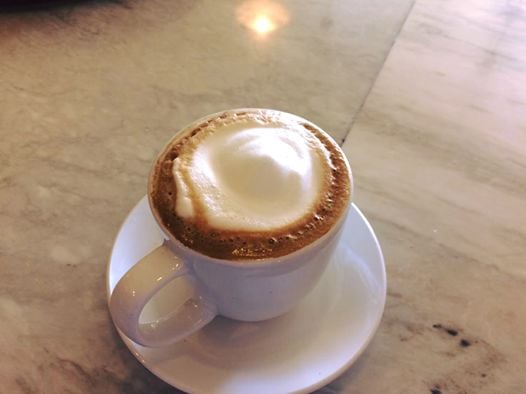For many cultures, coffee making is a celebration of its own.
Cultures across the world preserve this celebration through different traditions that seep through each part of the coffee-making process.
And lucky for Tucsonans, there are lots of places to get a caffeine fix with different international flavors:
Arabic Coffee
As the story goes, if you need to stay up late or don’t want to sleep, Arabic coffee is all you need.
“[Arabic coffee] is really high in caffeine,” said Ari Baban, owner of Za’atar’s Mediterranean Restaurant in Tucson.
Baban claims the finest coffee beans originated from Yemen, and the roasting is the most important part about it. Dark roast remains the favorite among the larger part of the Arab world, Baban said, but light and medium roasts still have a place on Middle Eastern tables.
What adds to the uniqueness of the Arabic coffee is the roasting. Baban said roasting the beans exposes the oils, which adds to the distinctive taste.
Arabic coffee is made unfiltered with finely ground coffee beans, so fine that they resemble the texture of powder, like cocoa. The ground beans are brewed and served in a dallah, or traditional coffee pot. While preferably served black, some people add cardamom or cloves for a more robust taste. The coffee is also traditionally served with sugar, along with a piece of sweets like baklava.
Where to find it:
ZA'ATAR Mediterranean Restaurant ($3 a cup), 2310 N. Country Club Rd.; Mazaj Cafe Hookah Lounge, 903 E. Fort Lowell Rd.; Sinbad’s Restaurant, 810 E. University Blvd., Zayna Mediterranean, 1138 N. Belvedere Ave., Shish Kabab House 5855 East Broadway Blvd.
Ethiopian coffee
In Ethiopia, the ceremony of making coffee is one that brings family and society members closer together, said Huruy Zerghi, co-owner of Cafe Desta.
The coffee ceremony takes between 2-3 hours. It starts with beans grinding and roasting, and it ends with serving coffee in a Gebena, or black clay coffee pot.
“[Coffee ceremony] is a big part of the culture,” Huruy Zerghi, co-owner of Cafe Desta, said.
The first round of coffee can take up to 30 minutes to make. Afterward, coffee is poured out of the Gebena into a filter, traditionally made from horsetail or cow tail, according to Zerghi.
The first round of coffee is strong and once that’s done, water is added to the pot for the second and third rounds. The last round is lighter, and that portion is served to the youngest member of the gathering.
Coffee is served black. In modern households, milk and cookies could be served on the side.
Where to find it:
You can stop by Cafe Desta at 758 S. Stone Ave. to enjoy some Gebena coffee for $10.00. One pot of Gebena serves up to 6 people. (Make sure you specifically ask for the Gebena!)
Greek Coffee
Turks and Greeks still fight over what we now know as Greek or Turkish coffee.
“The Turks claim [coffee] is Turkish, the Greeks claim it’s Greek,” George Fronimakis, owner of Fronimo's Greek Cafe, said.
Coffee is strongly brewed and is served three times a day: in the morning, at noon, and late afternoon, Fronimakis said.
Coffee is normally served with a cup of water and cookies on the side. Cream or milk are traditionally not included, although this tends to be common among younger generations.
Greek coffee is meant for a relaxing, enjoyable experience, where one sips it slowly and chats with family, guests or friends.
Where to find it:
Fronimo’s Greek Cafe on 3242 E Speedway Blvd. is one of the spots in town that serves Greeks coffee. You can pick up a cup for $2.50.
Bosnian coffee
Whether it’s morning or afternoon, everyone in Bosnia agrees that coffee is the treat for any social gathering, according to Halida Alisah, co-owner of Chef Alisah’s Restaurant in northwest Tucson. Like in many cultures, it's an act of courtesy and hospitality, Alisah said.
Bosnian coffee refers to the method of preparation of the coffee, something Bosnians hold as a crucial part of their social and cultural life, Alisah said.
Bosnian coffee is prepared with medium roast beans, finely ground and brewed black. It’s served in a long-necked, wide-based copper pot called a džezva.
When served, people offer sugar on the side, along with some Bosnian sweets and a cup of water.
Alisah said while milk is typically foreign to Bosnian coffee, some people may find it more enjoyable to add some milk in order to balance the strong coffee flavor.
Where to find it:
You can find Bosnian coffee at Alisah’s Restaurant on 5931 N Oracle Rd. Ask for a cup of freshly brewed coffee for $3.50.





